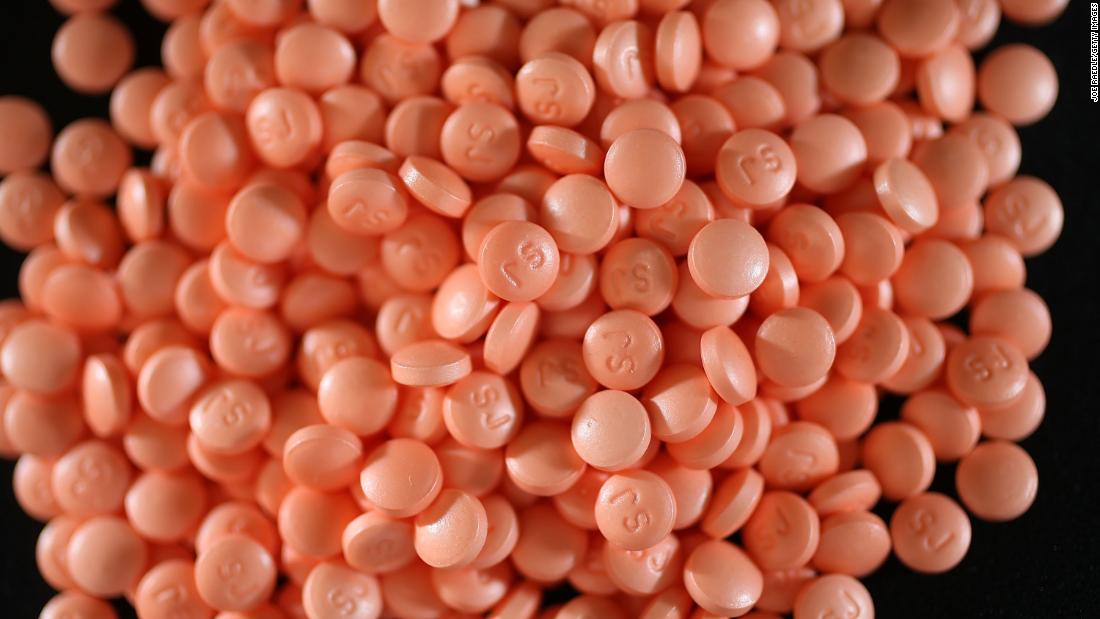The US Preventive Assistance Endeavor Drive has finalized its newest recommendations on lower-dose aspirin regimens and now suggests individuals in excess of 60 ought to not start off getting a day-to-day aspirin for key prevention of coronary heart complications, in most conditions.
If you are amongst 40 and 59 yrs aged, the USPSTF leaves it up to you and your medical doctor to make a decision regardless of whether you ought to take a day by day aspirin in particular situation.
But if you have had a coronary heart assault, a stroke or other coronary heart or circulation troubles and your health care provider has put you on each day aspirin, never cease getting it — alternatively, discuss with them about what the new suggestions signify for you.
“In secondary prevention, aspirin is critical. If you have a stent, if you have had a myocardial infarction or a stroke, for all of people people today, aspirin works. It offers a modest but definite benefit,” Nissen said.
The USPSTF is a team of independent sickness prevention and health care industry experts from across the nation who make tips that aid guidebook doctors’ decisions. Their recommendations also affect insurance coverage companies’ reimbursement conclusions.
In accordance to the recommendations, revealed Tuesday in JAMA, your medical professional might want to take into account an aspirin routine if you are in the 40-to-59 age selection and you have a 10{fe463f59fb70c5c01486843be1d66c13e664ed3ae921464fa884afebcc0ffe6c} or increased 10-12 months chance for cardiovascular illness.
This implies your probability of having a coronary heart assault or stroke in the following 10 yrs is larger than normal, based mostly on a calculation that contains aspects like age, intercourse, race, cholesterol levels, blood pressure, medicine use, diabetic standing and smoking status. In accordance to the task pressure, a day-to-day aspirin only “has a compact net profit,” for this team exclusively.
Research drove change in assistance
The foundation for the current tips is the process force’s evaluation of many sizeable randomized scientific trials on very low-dose aspirin use, which found an affiliation with a decreased risk of myocardial infarction and stroke but not a reduction in mortality. Very low-dose aspirin was also connected with improves in the danger of bleeding.
The last time the activity drive up to date these suggestions, in 2016, it suggested that day by day aspirin could be of benefit in colorectal most cancers avoidance. But the up to date rules say there is confined evidence that it cuts down the risk of colorectal most cancers pitfalls or mortality from that most cancers.
The 2016 tips said there was some merit in day by day aspirin use for people 50 to 59 who experienced a 10-calendar year threat of cardiovascular complications better than 10{fe463f59fb70c5c01486843be1d66c13e664ed3ae921464fa884afebcc0ffe6c}, who ended up predicted to dwell for a longer time than 10 decades and who were not at increased threat of bleeding.
The 2016 rules also advised that men and women 60 to 69 with a 10{fe463f59fb70c5c01486843be1d66c13e664ed3ae921464fa884afebcc0ffe6c} or larger cardiovascular danger should really make an individual choice about taking a daily aspirin.
Bleeding challenges in people today with no high-possibility ailments like peptic ulcer condition, NSAID use or corticosteroid use are scarce, the job drive notes, but the risk goes up with age. “Modeling data propose that it could be reasonable to consider stopping aspirin use around age 75 many years.”
Earlier alterations to coronary heart tips
These are not the only recommendations about each day aspirin use. The new USPSTF pointers are now far more in line with American College of Cardiology/American Coronary heart Affiliation guidelines and its suggestions for the regular human being who has never ever experienced a cardiac occasion, in accordance to Dr. Roger Blumenthal, who co-chaired the committee guiding the ACC/AHA guidelines.
“When you look at all the scientific tests that have been accomplished lately, it appears to be that the modest reward of aspirin and in any other case minimal-hazard people is usually negated by the boost in prolonged-term GI issues, bleeding with aspirin,” Blumenthal reported. “When we said it could be considered to give aspirin to another person who under no circumstances experienced a coronary heart assault or stroke, that really should possibly be the very last of the issues on the priority record.”
“Aspirin could even now make perception in some situations, where we are not accomplishing as very good a occupation managing cholesterol, blood pressure, for no matter what explanation,” Lloyd-Jones stated. “Maybe the remedies are also high-priced or a wellbeing procedure in a place can’t distribute all those items, aspirin may go on to make feeling, but I imagine in quite a few predicaments in this place, the place if folks have very good obtain to wellness treatment and they are using treatment of other possibility variables, aspirin now would make a ton a lot less feeling.”
“We usually preach that DNA is not your future, which means there are so quite a few matters we can do from a life style standpoint that can decrease long-term sickness and your hazard for a heart disorder and stroke,” Buchinsky reported.
He indicates a good eating plan with “actual food stuff” 90{fe463f59fb70c5c01486843be1d66c13e664ed3ae921464fa884afebcc0ffe6c} of the time and 10{fe463f59fb70c5c01486843be1d66c13e664ed3ae921464fa884afebcc0ffe6c} “pleasurable food items.” Purpose for at least 150 minutes of actual physical action a 7 days, get plenty of rest and goal anxiety. Really don’t smoke, and maintain consuming to a least. Drugs for cholesterol, diabetes and high blood force can also enable if required, but he stated it’s even much better if a affected individual isn’t going to require them.
“It is a lot much easier to prevent than cure,” Buchinsky explained.
